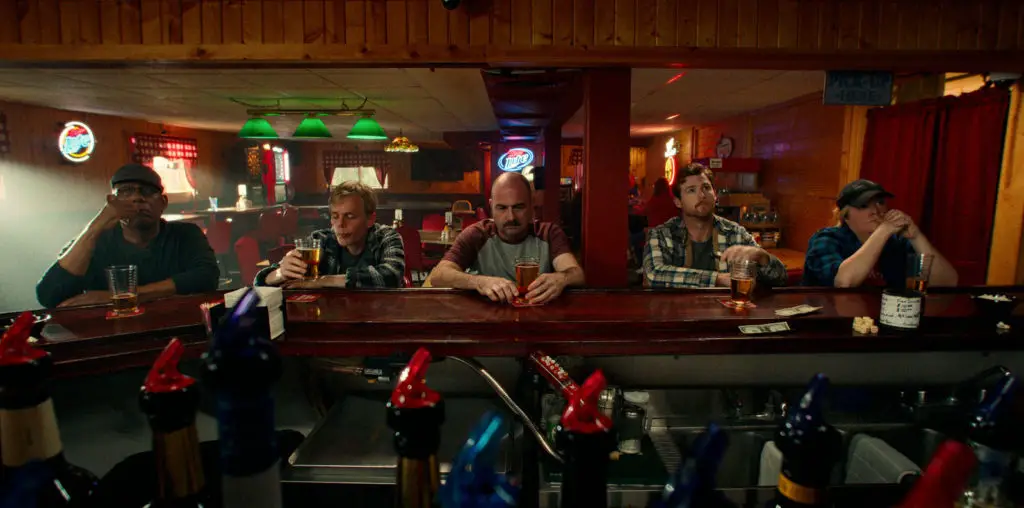
When Hurricane Katrina crashed down on the Gulf Coast in 2005, I really didn’t realize what the impact was and what it would continue be. In all honesty, I’ve grown so tired of media hype on every little thing that “could” happen, I tuned out the coverage after about day three. Yet I was drawn back into the coverage abruptly when I learned that my favorite city in America was being destroyed and no one was doing anything to help the people there. I’ve been to New Orleans twice and never have I felt such a sense of history, tradition, culture and fun in America. When I saw what was happening to the citizens of New Orleans, I became sick. These people were Americans and they were being treated like trash that the Hurricane left behind. To say I was angry would be an understatement.
Even while Katrina was happening word was Spike Lee was headed to Louisiana to do a documentary on the debacle. Many people felt Lee would make the film all about race or that he’d be too angry and too one-sided to do a fair job covering what was happening, myself included. Yet what he came up with, “When the Levees Broke: A Requiem in Four Acts” does a surprisingly good job of being fair to all sides involved. There’s plenty of blame to go around and Lee allows for all sides to be heard.
“When the Levees Broke” is broken into four parts, as the title suggests. Part one details the lead up to and the first hit of the storm. Part two covers what happened while the storm was raging. People evacuating, being driven to the Superdome or the Convention Center. Part three delves into the losses of life, property and spirit thousands faced and to whom the blame was directly attributed. Part four is more about moving forward from this tragedy. Through it all, the film is visually every bit a Spike Lee movie with truly indelible images of destruction, rebuilding, death and life. Lee refuses to look away from the horrors of Katrina. We see dead bodies, people emotionally scarred for life, crying jags. It hurts to see, but it needs to be seen so we can understand what happened and never let it happen again.
Lee also stages a few timely scenes including a real New Orleans jazz funeral for Katrina and a powerful spoken word poem. Always known for his jazz scores, Lee again enlists his longtime composer Terrence Blanchard (a New Orleans resident) not only to add gorgeous arrangements to the film but also, as a victim himself. One of the most heart wrenching scenes in the film is when Blanchard brings his elderly mother home for the first time after the Hurricane. We feel like her house, which seems fine from the inside but is anything but once the door is opened, is our house or our mothers house. It’s simply unfathomable what happened to New Orleans.
Where Lee succeeds best is in the way he puts a face to the victims of the storm and subsequent flooding. He manages to make the story of such great loss extremely personal as we get to know these people and feel for them. Well, sort of feel for them. I simply cannot imagine standing by, in America, and watching my mother die from heat exhaustion. Or coming home to survey the damage done to my childhood home and discovering a parent dead in the kitchen. But, it happened and it happened a lot. I also found it amazing how Lee leaves no stone unturned. Sure, at over four hours, it’s easy to cover ground, but Lee manages to give just enough time to each subject. He also manages to give plenty of time to each and every entity that was to blame for what happened.
Many will argue that Lee only takes “the black side” of the issue. But New Orleans is a predominantly black city. Others will say Lee doesn’t cover what happened in Biloxi and other Gulf Coast cities. But this film is about New Orleans. It really doesn’t matter where your politics lie, after you see “When the Levees Broke,” you cannot deny that a huge disaster was hugely mismanaged in post 9-11 America. But what happened in New Orleans isn’t all about who’s to blame, it’s about what was done wrong so we don’t repeat it and the film seeks to make sure we don’t forget these people and what they’re going through. All hyperbole aside, “When the Levees Broke” is one of the most important film documents ever made. It’s an honest, fair and unflinching look at one of the greatest, and saddest, natural disasters to hit our shores.
